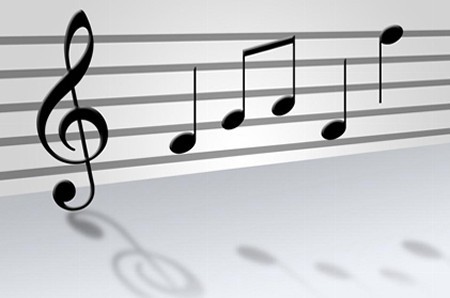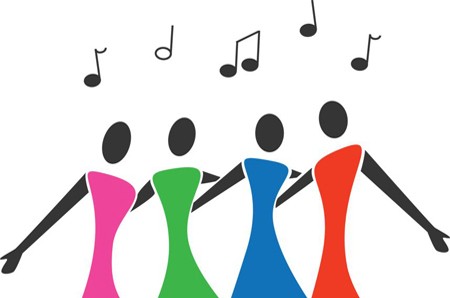Providing the Stress Management Support Your Deserve
Everyone has to deal with difficult people, whether they are argumentative, abusive, stubborn, or combative. The question is: how can you assert your rights without creating an unnecessary incident?
In most cases, angry people are screaming to be heard. They want to be valued, loved, and listened to. They want to feel important, but aren't able to express themselves constructively. With the right attitude, it's possible to get past these insecurities and reach an understanding.
Therapeutic effects of music
By; Ashraf Girgis N.D.
 |
Have you wondered what to do when angry, tired, or stressed about various issues? Typical responses could be tuning into your favorite music genre, or walking in nature-listening to the natural symphony around you.
Unsurprisingly, music is given great importance in all major religions. In Christianity singing and instrumental works are engrained in modern worshippers. However, this was not always the case; Christian music was thought to be confined to vocal melodies until the seventh century, and mostly consisted of repetition of Allelulia or other sacred phrases. Sometimes singing was purely melodic in nature, with no words-similarly to the Hebrew tradition. In the fifth century, choir schools (school cantorum) were established to train men for the church choir. By the 11th century instruments were common in churches. By the 1500s the influences of St. Mark’s and Italy took over the European continent.
|

|
Music in Islam is not without controversy, but there is no denying that repeating Quranic verses and vocal music was fundamental in spreading the word of God as it was written in the Quran. There are stories of how passerby were affected by the beautiful recitation of Quranic verses at the time of prayers, which broadcast into the street loudly, causing them to stop and listen. Some of these were eventually led to convert after listening to recited Quranic verses.
As said by the rock icon Yusuf Islam, known as Cat Stevens, there are two types of music: Halal and Haram. I agree wholeheartedly with this assessment. Any music steering violent feelings, materialistic desires, or sexual behavior is ‘Haram’, or prohibited in Islam. But music which awakens our spirituality to bring us closer to God can help us become a better individual, lessen our daily stress and anxiety, and ultimately pave the path to an inner awaking. This type of thought must be encouraged.
A similar controversy around music exists in Buddhism as well, beginning with the early stages of the religion. Inspired by a sage named Siddhartha Guatama, known as the Buddha, followers spread his teaching through chanting soon after his death. This trend towards chanting continued for several centuries, despite the early Buddhist belief that music was a sensual luxury to be avoided. In the Japanese Zen lifestyle, the sound of nature or singing birds is regarded as a musical form in and of itself.
|
|
Regardless of what religion or tradition you follow, we have all felt the great effect of music in our body and in our mental wellbeing. In fact, science has proven that music is not only good for reducing stress, but useful in a variety of diseases. Ultimately music is a sound which causes vibrations, and these microvibrations can be therapeutic. Dr. Lee Bartel, PhD, a music professor at the University of Toronto, conducted several studies and believes the vibrations caused by music, known as vibroacoustics, can be used to ease symptoms of Parkinson and fibromyalgia and even Alzheimer’s disease.
Many institutions are now incorporating music as therapy for their patients. The first school of music therapy in the United States was started in 1944 at the University of Michigan. Music therapists successfully employ in many situations in hospitals and hospice centers. In many states, including Michigan, music therapy is covered by medical insurance. However, we don’t need to be a music therapist to know what music can do for us. Our personal experiences can attest to what scientists are saying. Let’s look at some research:
|

|
|

|
1. Music decreases and alleviates pain
In a study conducted by French scientists and published in journal of chronic pain in May 2012 , Dr. Guetin and his colleges looked at 87 patients in a double blind study. The objective of study was to find usefulness of music in patients with chronic pain. The result indicated not only significant reduction in pain in comparison to the control group. It also reduced anxiety as well . Dr. Guetin stated “ ... music intervention contributed to significantly reducing both anxiety/depression and the consumption of anxiolytic agents.
According to Dr. Robert Zatorre of McGill University, listening to pleasant music triggers the brain neurotransmitter dopamine. This change is normally associated with food, sex and positive rewards. Among other effects, dopamine release can decrease the perception of pain. Some other studies such as the one conducted by Psychologist Mathieu Roy, of the University of Colorado suggest that music can prevent the transmission of pain signals from the spinal cord to the brain.” In other words, music can interfere with pain signals before pain reaches the brain at the level of spinal cord.
Although the effects of music may vary from person to person, individuals in this study responded positively to "The Blue Danube Waltz". David Bradshaw, of the University of Utah, believes distraction can be a factor in reduction of pain. In another study published in Clinical Rheumatology in 2011, the investigators studied 62 patients who went through invasive procedures. They listened to music for 5-10 minutes before the procedure and 10-20 minutes after and throughout the procedures. They responded much better and had less pain. In Singapore, researchers at Khoo Teck Puat Hospital found out that patients in palliative care who received live music therapy reported relief from continuous persistent pain (Progress in Palliative Care, July, 2013).
|
|
2. Reduction in stress and anxiety and depression.
There is a body of evidence showing that listening to relaxing music can lower stress, anxiety and depression. A study published in 2010 in the Journal Heart found patients who listen to relaxing music before heart surgery had reductions in the hormone cortisol (stress hormone) and had lower heart rates and lower anxiety levels, much less than even patients who received anti-anxiety drugs prior to the surgery. The classical music used were sonatas by Bach or Mozart. In another study conducted in an emergency room of a pediatric hospital indicated patients responding much better and exhibiting less stress and seemed more relaxed while listening to the music and IV insertion was done much easier as opposed to patients who did not listen to music (JAMA Pediatrics, July 2013). The study was done with 42 children between age 3-11 by the University of Alberta.
In a 2011 meta-analysis and review of 17 different studies, scientists concluded that music does reduce symptoms of depression. In another meta-analysis of 400 studies by Dr. Levitin from the McGill University,his postgraduate, Mona Lisa Chanda PhD found out that music improved the body’s immune system and reduced stress. They also found that listening to music was more effective than prescription anti-anxiety drugs before sugary. Their finding was published in Trends Cognitive Sciences in April 2013.
According to Dr. Lisa Hartling, the author and lead investigator, who is a professor of pediatrics at the University of Alberta, "There is growing scientific evidence showing that the brain responds to music in very specific ways. Playing music for kids during painful medical procedures is a simple intervention that can make a big difference." Other processes which respond positively to music include: rehabilitation from brain injuries, physical disabilities, pain in mothers during labor and for lowering of blood pressure.
In the 90’s, I worked in the cardiovascular surgical unit at Stanford and conducted research on ICU psychosis. The second half of my research included using subliminal messages combined with music before, during and after their heart surgery. Outcomes were measured so we could find out if patients responded better and had less ICU psychosis. Unfortunately I did not have the opportunity to complete the project due to moving and getting married in another state. But, I have always been a firm believer in music and its impact on our mind and on our overall health.
|

|
|

|
3. Music has been shown to enhance communications, overall sense of well being and enhance memory.
A study published in April of 2018 by the University of Utah indicated meaningful music is a very effective method of communicating with Alzheimer’s patients. In another study researchers let patients listen to music from their own collections. While they look in to the brain using functional MRI. They found out music activates brain cells, allowing the whole region of brain to communicate. Scientists found out the entire brain especially executive network of brain showed significant connectivity. According to Norman Foster, M.D. director of the Center for Alzheimer’s care “"This is objective evidence from brain imaging that shows personally meaningful music is an alternative route for communicating with patients who have Alzheimer's disease. Language and visual memory pathways are damaged early as the disease progresses, but personalized music programs can activate the brain, especially for patients who are losing contact with their environment."
The effect of music on nursing home residents shows consistent results:
Participants are happier and more social.
Relationships among staff, participants and family deepen.
Everyone benefits from a calmer, more supportive social environment.
Staff regain valuable time previously lost to behavior management issues.
There is growing evidence that a personalized music program gives professionals one more tool in their effort to reduce reliance on anti-psychotic medications.
So, to summarize, I suggest incorporating music into your daily life. Even walking in nature to listen to the breeze, the birds, and running water all can make one calm and relaxed similarly to music. Twenty minutes of walking in nature or 15-20 minutes of listening to your favorite music while walking or exercising can be a great approach to not only relax, but help heal your body and mind. Personally, I listen to relaxing music all the time and suggest it to my clients to do the same. By doing so, you allow your body to enjoy getting all its healing benefits. You can even combine it with singing of your own, or write your own songs lyrics. Enjoy whatever genres makes you happy; the full extent of music’s ’ therapeutic benefits increases every year!
|
References:
https://www.ncbi.nlm.nih.gov/pubmed/22001666
https://www.sciencedirect.com/science/article/pii/S002839321000179X
19628939
https://www.psychologytoday.com/us/blog/media-spotlight/201603/can-listening-music-help-control-pain
19628939224-is-music-allowed-in-islam.html
https://www.aljazeera.com/indepth/features/2012/04/201241774025368229.html
http://www.personal.utulsa.edu/~john-powell/Buddhist_Music/
http://www.jpreventionalzheimer.com
http://www.oxfordbibliographies.com/view/document/obo-9780195393521/obo-9780195393521-0136.xml
what-did-the-buddha-say-about-music
http://www.nantien.org.au/en/sites/upload/buddhism/pdf/bies16.pdf
http://t.your.univadis.com/webApp/make-the-most-of-education?partner=mtmou&m=adwords&gclid=EAIaIQobChMI3obk3bqr2wIVg6DsCh07UQMdEAAYASAAEgJIRfD_BwEhttp://www.nantien.org.au/en/sites/upload/buddhism/pdf/bies16.pdf
|
|
Additional Articles
|
 Stress relief from laughter? It's no joke Stress relief from laughter? It's no joke
Read More
|

Americans Are A Lonely Lot, And Young People Bear The Heaviest Burden
Read More
|

Physical Activity Reduces Stress
Read More
|
|
|
|
Additional Articles

The Chemistry of Happiness
Read More |

The Tell Tale Signs of Burnout ... Do You Have Them?
Read More
|
 How to Discipline Without Stress, Punishment, or Rewards How to Discipline Without Stress, Punishment, or Rewards
Read More
|
|
|
|
|